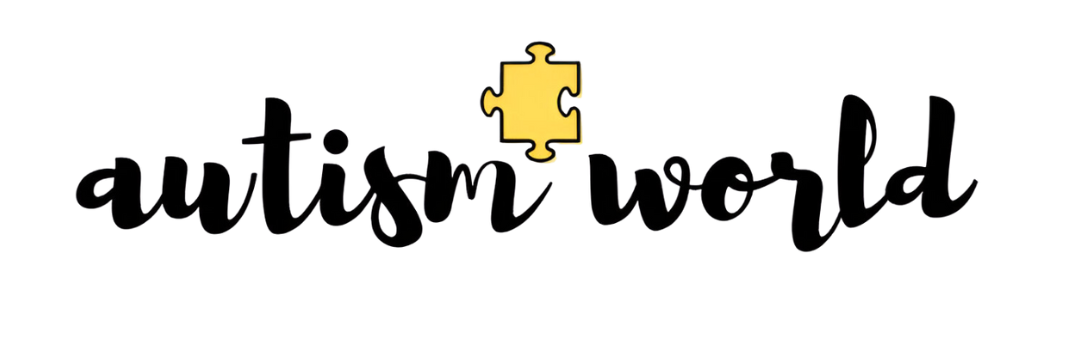With 9 years of experience in the kitchen, I’m passionate about crafting delicious recipes and sharing them with food lovers worldwide. 🍽️✨ Whether it’s a comforting homemade dish or a creative cocktail, my goal is to make cooking fun, easy, and enjoyable for everyone. Join me on this flavorful journey! 🍹🥗

Autism and Mental Health: 5 Essential Support Strategies [Guide]
Autism and Mental Health: 5 Essential Support Strategies [Guide]
The intersection of autism and mental health is a complex and often overlooked area. Individuals on the autism spectrum are at a significantly higher risk of experiencing mental health challenges compared to their neurotypical peers. Understanding this connection and implementing effective support strategies is crucial for promoting wellbeing and fostering resilience within the autistic community. This comprehensive guide will explore the critical link between autism and mental health and provide actionable steps you can take to improve the lives of autistic individuals.
Step 1: Research and Planning for Your Cleaning Business
Starting a cleaning business, like any entrepreneurial venture, requires careful research and meticulous planning. Before diving into the practical aspects, you must understand the industry landscape and identify your target market. This foundational step sets the stage for success and helps you avoid common pitfalls.
Understanding the Cleaning Industry Landscape
The cleaning industry is vast and diverse, encompassing residential cleaning, commercial cleaning, specialized cleaning services (e.g., window cleaning, carpet cleaning), and more. Conduct thorough market research to understand the current trends, competitive landscape, and potential opportunities in your local area. Tools like the Bureau of Labor Statistics can be invaluable in assessing market size and growth.
Analyze the existing cleaning businesses in your area. What services do they offer? What are their pricing strategies? What are their strengths and weaknesses? Identifying gaps in the market can help you differentiate your business and attract customers. Consider factors such as:
- The size of the local market
- The demographics of the population
- The presence of large commercial buildings or residential complexes
- The demand for specialized cleaning services
Identifying Your Target Cleaning Business Market
Defining your target market is crucial for tailoring your services and marketing efforts effectively. Are you targeting residential clients, commercial businesses, or both? Within these categories, you can further narrow your focus based on factors such as:
- Residential: Homeowners, renters, busy professionals, families with children, elderly individuals
- Commercial: Offices, retail stores, restaurants, medical facilities, schools, industrial spaces
- Specialized: Vacation rentals, post-construction cleaning, event cleanup
Understanding your target market’s needs and preferences will inform your service offerings, pricing strategies, and marketing campaigns. For example, if you’re targeting busy professionals, you might offer convenient online booking and flexible scheduling options. If you’re targeting elderly individuals, you might emphasize reliability and trustworthiness.
Step 2: Legal Setup for Your Cleaning Business
Establishing the legal foundation of your cleaning business is a critical step that ensures compliance with regulations and protects you from potential liabilities. This involves choosing the right business structure, registering your business, and obtaining the necessary licenses and permits.
Choosing a Business Structure for Your Cleaning Startup
The business structure you choose will have significant implications for your legal liability, tax obligations, and administrative requirements. Common business structures include:
- Sole Proprietorship: The simplest structure, where the business is owned and run by one person. It’s easy to set up, but you’re personally liable for all business debts and obligations.
- Partnership: Similar to a sole proprietorship, but involves two or more owners. Partners share profits and losses and are typically jointly liable for business debts.
- Limited Liability Company (LLC): Offers liability protection by separating your personal assets from your business debts. LLCs are relatively easy to set up and offer flexibility in terms of taxation.
- Corporation: A more complex structure that’s legally separate from its owners (shareholders). Corporations offer the strongest liability protection but have more stringent regulatory requirements.
Consult with a legal professional or business advisor to determine the most appropriate business structure for your specific circumstances.
Registering and Licensing Your Cleaning Business
Once you’ve chosen a business structure, you’ll need to register your business with the relevant government agencies. This typically involves obtaining a business license or permit from your local city or county, as well as registering with your state’s Secretary of State office.
The specific licenses and permits required will vary depending on your location and the type of cleaning services you offer. Common requirements may include:
- General business license
- Sales tax permit (if you’re selling products or taxable services)
- Employer Identification Number (EIN) from the IRS (if you plan to hire employees)
- Specialized licenses for certain cleaning services (e.g., hazardous waste removal)
Ensure you comply with all applicable regulations to avoid penalties and legal issues.
Step 3: Creating a Cleaning Business Plan
A well-structured business plan is essential for guiding your cleaning business’s development and securing funding. It serves as a roadmap for success, outlining your goals, strategies, and financial projections.
Essential Components of a Cleaning Business Plan
A comprehensive cleaning business plan should include the following key components:
- Executive Summary: A brief overview of your business, including your mission statement, goals, and target market.
- Company Description: A detailed description of your business, including your legal structure, ownership, and history (if applicable).
- Market Analysis: A thorough analysis of the cleaning industry in your area, including your target market, competitive landscape, and potential opportunities.
- Service Offerings: A detailed description of the cleaning services you plan to offer, including pricing strategies and differentiation factors.
- Marketing and Sales Strategy: A comprehensive plan for attracting and retaining customers, including your branding, advertising, and sales tactics.
- Management Team: Information about your management team and their relevant experience and expertise.
- Financial Projections: Detailed financial forecasts for your business, including startup costs, revenue projections, expense budgets, and cash flow statements.
A well-written business plan demonstrates your understanding of the industry and your commitment to success.
Financial Projections for Your Cleaning Business
Realistic financial projections are crucial for assessing the viability of your business and securing funding from investors or lenders. Your financial projections should include:
- Startup Costs: A detailed breakdown of all the expenses you’ll incur to launch your business, including equipment, supplies, marketing materials, and legal fees.
- Revenue Projections: Estimates of your expected revenue based on your target market, pricing strategies, and sales forecasts.
- Expense Budgets: Detailed budgets for all your operating expenses, including labor costs, supplies, rent, utilities, and marketing expenses.
- Cash Flow Statements: Projections of your cash inflows and outflows over a specific period, demonstrating your ability to manage your finances and meet your obligations.
Use realistic assumptions and conservative estimates when developing your financial projections to ensure they are accurate and reliable.
Step 4: Funding Your Cleaning Business Startup
Securing adequate funding is essential for launching and growing your cleaning business. Understanding your startup costs and exploring various funding options will help you overcome financial challenges.
Startup Cost Breakdown for Cleaning Businesses
The startup costs for a cleaning business can vary depending on the scope of your operations and the type of services you offer. Common expenses include:
- Equipment and Supplies: Cleaning equipment (e.g., vacuum cleaners, mops, buckets), cleaning supplies (e.g., detergents, disinfectants), and safety gear.
- Vehicle: A reliable vehicle for transporting equipment and supplies to client locations.
- Marketing Materials: Business cards, flyers, website, and online advertising.
- Insurance: General liability insurance, workers’ compensation insurance (if you hire employees), and vehicle insurance.
- Legal and Accounting Fees: Fees for setting up your business structure, obtaining licenses and permits, and managing your finances.
- Office Space: Rent for an office or storage space (if needed).
Create a detailed budget to estimate your startup costs accurately and identify areas where you can potentially reduce expenses.
Funding Options for Your Cleaning Business
Several funding options are available for cleaning businesses, including:
- Personal Savings: Using your own savings is the most common way to fund a small business.
- Loans from Family and Friends: Borrowing money from family and friends can be a viable option, but be sure to formalize the agreement with a written contract.
- Small Business Loans: Banks and credit unions offer small business loans to qualified borrowers.
- Grants: Government grants and private foundations may offer funding for small businesses in specific industries or geographic areas.
- Angel Investors: Angel investors are wealthy individuals who invest in startups in exchange for equity.
- Crowdfunding: Raising money from a large number of people through online platforms like Kickstarter or GoFundMe.
Research and compare different funding options to find the best fit for your needs and financial situation.
Step 5: Defining Cleaning Business Services
Clearly defining your service offerings and pricing strategies is crucial for attracting customers and generating revenue. This involves identifying the types of cleaning services you’ll offer and determining how much to charge for them.
Types of Cleaning Services to Offer
The types of cleaning services you can offer are diverse and depend on your target market and expertise. Common services include:
- Residential Cleaning: Regular cleaning of homes, apartments, and condos.
- Commercial Cleaning: Cleaning of offices, retail stores, and other commercial spaces.
- Deep Cleaning: Thorough cleaning of a property, often performed on a seasonal basis or before/after a move.
- Move-In/Move-Out Cleaning: Cleaning of properties before or after tenants move in or out.
- Specialized Cleaning: Cleaning of specific items or areas, such as carpets, windows, or upholstery.
- Post-Construction Cleaning: Cleaning of properties after construction or renovation.
- Vacation Rental Cleaning: Cleaning of vacation rental properties between guests.
Consider offering a combination of services to cater to a wider range of clients.
Pricing Strategies for Your Cleaning Business
Determining your pricing strategies is essential for profitability and competitiveness. Common pricing strategies include:
- Hourly Rate: Charging a fixed hourly rate for your services.
- Flat Rate: Charging a fixed price for a specific service, regardless of the time it takes to complete.
- Per-Square-Foot Rate: Charging a rate based on the square footage of the area being cleaned.
- Value-Based Pricing: Charging a premium price based on the perceived value of your services.
Consider factors such as your costs, competition, and target market when setting your prices. Regularly review and adjust your prices as needed to ensure profitability.
Step 6: Cleaning Business Equipment and Supplies
Investing in the right equipment and supplies is crucial for providing high-quality cleaning services efficiently and effectively. This involves identifying essential equipment and sourcing quality cleaning supplies.
Essential Equipment for Starting a Cleaning Business
The essential equipment for a cleaning business includes:
- Vacuum Cleaner: A high-quality vacuum cleaner for removing dirt and debris from carpets and floors.
- Mop and Bucket: For cleaning hard floors.
- Cleaning Cloths and Sponges: For wiping surfaces and cleaning spills.
- Spray Bottles: For dispensing cleaning solutions.
- Broom and Dustpan: For sweeping floors and collecting debris.
- Gloves: For protecting your hands from chemicals and dirt.
- Safety Glasses: For protecting your eyes from splashes and spills.
Consider investing in durable and reliable equipment that will withstand frequent use.
Sourcing Quality Cleaning Supplies
Using high-quality cleaning supplies is essential for achieving excellent results and ensuring customer satisfaction. Source your cleaning supplies from reputable suppliers and consider factors such as:
- Effectiveness: Choose cleaning supplies that are effective at removing dirt, grime, and stains.
- Safety: Select cleaning supplies that are safe for use on various surfaces and for the environment.
- Cost-Effectiveness: Compare prices from different suppliers to find the best value for your money.
- Eco-Friendliness: Consider using eco-friendly cleaning supplies to appeal to environmentally conscious customers.
Establish relationships with reliable suppliers to ensure a consistent supply of quality cleaning products.
Step 7: Insurance and Legal Protection
Protecting your cleaning business from potential liabilities is essential for long-term success. This involves obtaining the required insurance coverage and implementing legal safeguards.
Required Insurance for Cleaning Businesses
The required insurance for cleaning businesses typically includes:
- General Liability Insurance: Protects your business from financial losses resulting from bodily injury or property damage caused by your operations.
- Workers’ Compensation Insurance: Provides coverage for medical expenses and lost wages for employees who are injured on the job.
- Commercial Auto Insurance: Covers vehicles used for business purposes.




